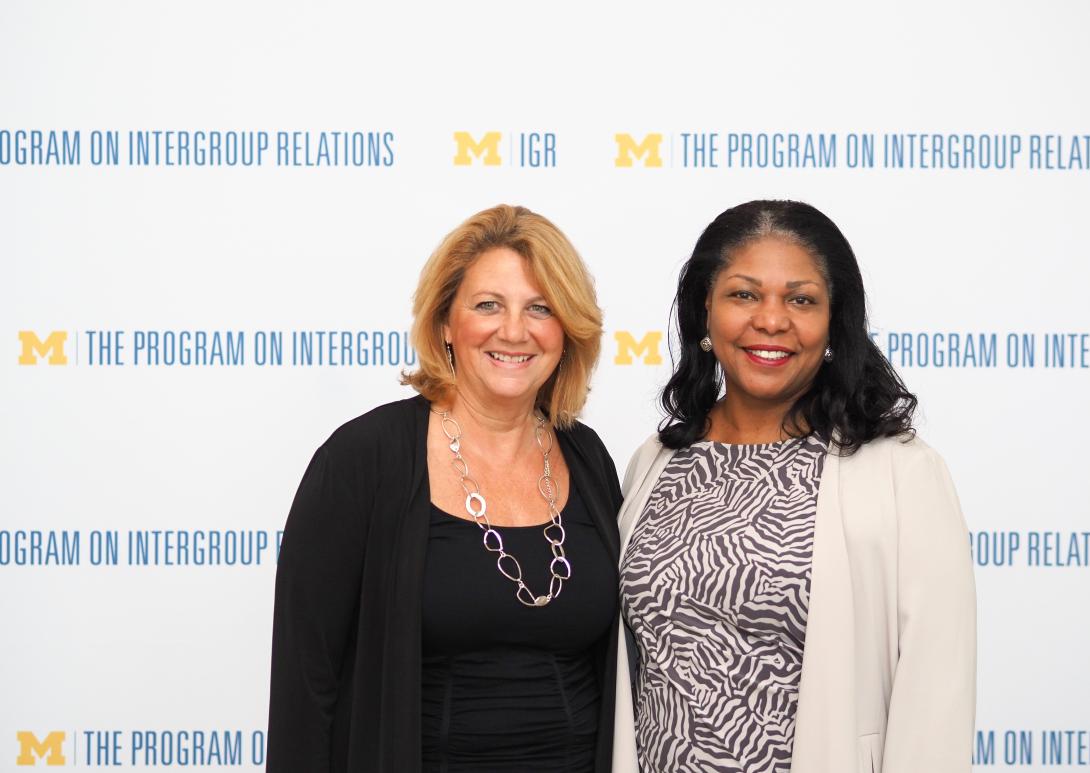August 31, 2021
Dear friends,
Welcome to Fall 2021 at The Program on Intergroup Relations at the University of Michigan.
If this past year has taught us anything, it is that our work as a social justice education program is needed more than ever. The pandemic revealed the health inequities that were so long invisible to some. The racial reckoning in the wake of George Floyd’s murder, the skyrocketing anti-Asian hate crimes, the attempted coup at the capitol last January, and the politization of critical race theory all stem from a similar source: people don’t know how to talk – and more importantly listen – across difference.
IGR at U-M is the first program of its kind in higher education, conceived and developed in 1988 by a group of U-M faculty, staff, and students dedicated to the notion that understanding social inequality is a foundational principle of undergraduate education. Since its founding, IGR has offered students a robust opportunity to explore social diversity in an intentional, reflective way, through intergroup dialogue and liberatory education practice. IGR is a partnership between Student Life and the College of Literature, Science, and the Arts precisely because we believe our work is to assist students in developing their full human potential.
We believe that understanding the differences between us is crucial to the development of thoughtful global citizens. We teach and learn about social group identity, intergroup relations, inequality, working through conflict, and communicating across differences. We encourage students, staff, and faculty to learn about differences and similarities, to embrace them and to find commonality in the human experience. To this end, we focus on gender, ethnicity, race, sexual orientation, religion, ability status, socio-economic class, nationality, and other topics. Our goal is to empower our students to develop tools to dismantle systems of oppression to create a more just and equitable liberated society.
In the last 18 months, we successfully moved all of our programming and courses to remote format and discovered the magic of technology. Our data shows that remote dialogic experiences can yield powerful results. This fall, we are excited to return to mostly face-to-face learning, though interwoven with new activities and ideas we learned through a period of deep creativity and innovation.
As we venture forward, we take courage from those upon whose shoulders we stand. In 1857, Frederick Douglas said, “If there is no struggle, there is no progress,” and while we find ourselves 164 years later still in the struggle, we believe, as Martin Luther King said, “The arc of the moral university is long but it bends toward justice.” We take heart in seeing that the discourse is changing and we have hope that from the ashes of the current moment, a new, more just, and equitable society will arise.
As our colleague Stephanie Hicks has written, “Hope isn’t something we do when it’s convenient, when it seems like better days or a better world are right around the corner. Yearning for the world we want and creating it is something we have to do consistently, with rigor, even when - especially when - times are tough.
We here at IGR are committed to hope – to planting seeds of justice – and get into what John Lewis has called “good trouble.”
Donna Rich Kaplowitz and Monita C. Thompson

